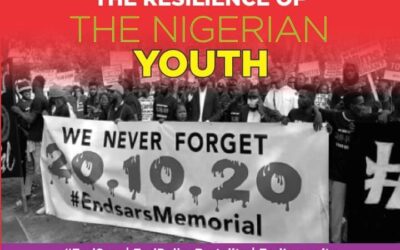The controversy surrounding the emergence of the document headed “Draft Constitution” has been very well documented. The document refers to one ostensibly produced by an All Party Committee on the Review of the 1999 Constitution. There has been some attempt made in the media to describe how the document itself originated amongst some of the delegates at the ongoing National Political Reforms Conference. The document, it is alleged, recommends amongst other things, a six-year tenure for the President and Governors. It is also alleged that it controversially drops Igbo as a national language for the conduct of business at the National Assembly but retains English, Hausa and Yoruba as preferred languages for this purpose.
The observations that we as an organisation have to make do not, at this stage, principally relate to the contents of the document. For the avoidance of doubt, the opponents of the contents of this document whose position is based purely on their objection to the proposed six-year tenure will very quickly be referred by its proposers to a provision in the said document (article 142(1)(2)) by which any person who has qualified for election to the office of presidency and has been elected to such office on two previous occasions shall not be qualified to stand for fresh election into the proposed single term of six years. What has concerned well-meaning Nigerians, apart from the distraction of the contents of the document, is the manner in which the document has appeared at the conference.
Various accounts have been given about the measures of this document at the conference. Kanu Agabi (SAN) and Professor Jerry Gana have made strong, forceful representations on behalf of the Government as to how the document emerged. There have been conflicting accounts as to how this document reached the conference but the position that the Government appears to have taken is that it was one of the documents mentioned in the President’s speech in the inaugurating the conference on 21 February 2005. What is clear from the facts in the public domain is that the document was not circulated to delegates with the basic material that they received at the inception of the conference. The opposing view emerges from the Secretariat of the Conference. Reverend Matthew Hassan Kukah, the secretary of the Conference, is adamant that the document had not been received by the secretariat. The explanation the esteemed secretary offers is that had that been the case, it would have been distributed to the 19 committees of the Conference. Prince Bola Ajibola, the Judicial and Legal Reforms Committee Chairman at the Conference is specifically quoted as saying that the document was rejected only for the reason that it was not submitted by the 29 March deadline. That controversy remains unresolved, despite the protestations s on both sides of the divide. What has become manifestly clear is that the attention and interest that ought to have been applied to the consideration of the reviews reflected in that draft document have become secondary, only for reasons attributable to the emergence of the document itself.
Given the manner in which the conference itself was called, it was inevitable that situations of this nature would arise. What, perhaps, was not conceived was that it all arose from the necessity to bring to the attention of the Conference, a document of this nature especially one in respect of which, clearly, considerable work and thought had been given in producing it. In effect, this development is a direct consequence of the quite hurried nature in which both the conference itself and the mechanics of its operation have been conducted. On the one hand, to have omitted a document of such significance in the basic material that was presented to the delegates and the committee is, at best, sheer carelessness and at worst, negligent indifference. If account is to be taken of Government resources in the form of high profile Government functionaries who participated in the production of the document, the omission of such a crucial document, for what it is worth, is a lapse of the highest proportion. After all, as is manifestly clear, there is no establishment or organisation in Nigeria, given its proximity to the nation’s resources, with better resources to produce a constitution in the form of a draft constitution that is put together by a Government funded and supported exercise.
A further and inescapable consequence of this development is that it must be manifestly clear to the conference itself and indeed to the nation at large that the extremely narrow and restricted timetable set by the Conference for receiving memoranda containing proposals, ideas and materials must meant that the conference will be shorn of quality of considered reflection and some of the best ideas that may achieve greater fulfilment for Nigerians as a whole. The approach that seeks to exclude material from the consideration by this Conference is flawed. Such an approach has and will stifle the free flow of thoughts and views necessary to make the Conference a success. The machinery of the Conference must be such that delegates must continue to be allowed to access materials from whatever source they originate until the plenary sessions take a final decision on each subject that come before it. The only situation that should be discouraged from occurring is one where, upon conclusion of deliberations and resolutions emerging, such new or additional evidence is used to open those deliberations. The reasoning for this is plainly obvious. There must be a finite conclusion to the deliberation. However, arming the delegates with material and information upon which contributions to the plenary sessions and its deliberations can and must be encouraged.
One must ask the question – what is there to fear in this draft constitution? Similarly, is there anything that the delegates or various interest groups are and should be concerned about in additional material and evidence being placed before the Conference? The protagonists of this Conference have led the nation to believe that it is one where all the issues raised in the terms of reference touching upon the future of Nigeria can and should be freely discussed. The nation has been told that the delegates have been selected upon the premises of their own individual antecedents as persons whose experience of life in all aspects of their professional; social-political and economic endeavour makes them best suited for this role and will permit them the latitude to be able to contribute meaningfully to the formulation of proposals for the best interest of Nigeria. The Conference was convoked on 21 February 2005. By March 2005, their appointments were announced. By the end of March 2005, the official period for submission of memoranda had ceased, this effectively occurring on 29 March 2005. Taking account of but without prejudice to residual knowledge, the delegates who were appointed were largely unprepared for this role. Many did not, and probably still have not, formulated views, beliefs or positions on some, if not most of the issues that are to be discussed. NAS strongly believes that memoranda, especially those with analytical content, should continue to be available to delegates and that the Conference have an overriding obligation to ensure that this is the case as these materials will serve as useful guides or foundation.
NAS has always believed that the period given the completion of this enormous task is unreasonable and inadequate especially for a task of this magnitude and significance. NAS suggests that the contents of this draft constitution should be made public. Nigerians should have the opportunity to comment on it freely and, even more, to bring the views of those wider thoughts to the attention of their delegates, because they have been chosen to represent them at the conference. Those delegates have an obligation to put forward those positions. The reality is that only the openness of this process can guarantee its acceptability. Neither the proposers of the draft constitution nor those who seek to limit its availability can emerge from this situation with any glory. It seems eminently sensible that the document itself should be publicised and that the Conference opens up, if it has not done so, its processes to consultative adjustment that seems necessary in order to ensure that the qualified confidence that the conference itself has generated amongst Nigerians does not disappear completely. There is still time to make amends now that the plenary aspects of the deliberations have only just commenced.
Signed:
ANDREW OBINNA ONYEARU
NAS Capone
National Association of Seadogs (NAS)
6th May 2005



